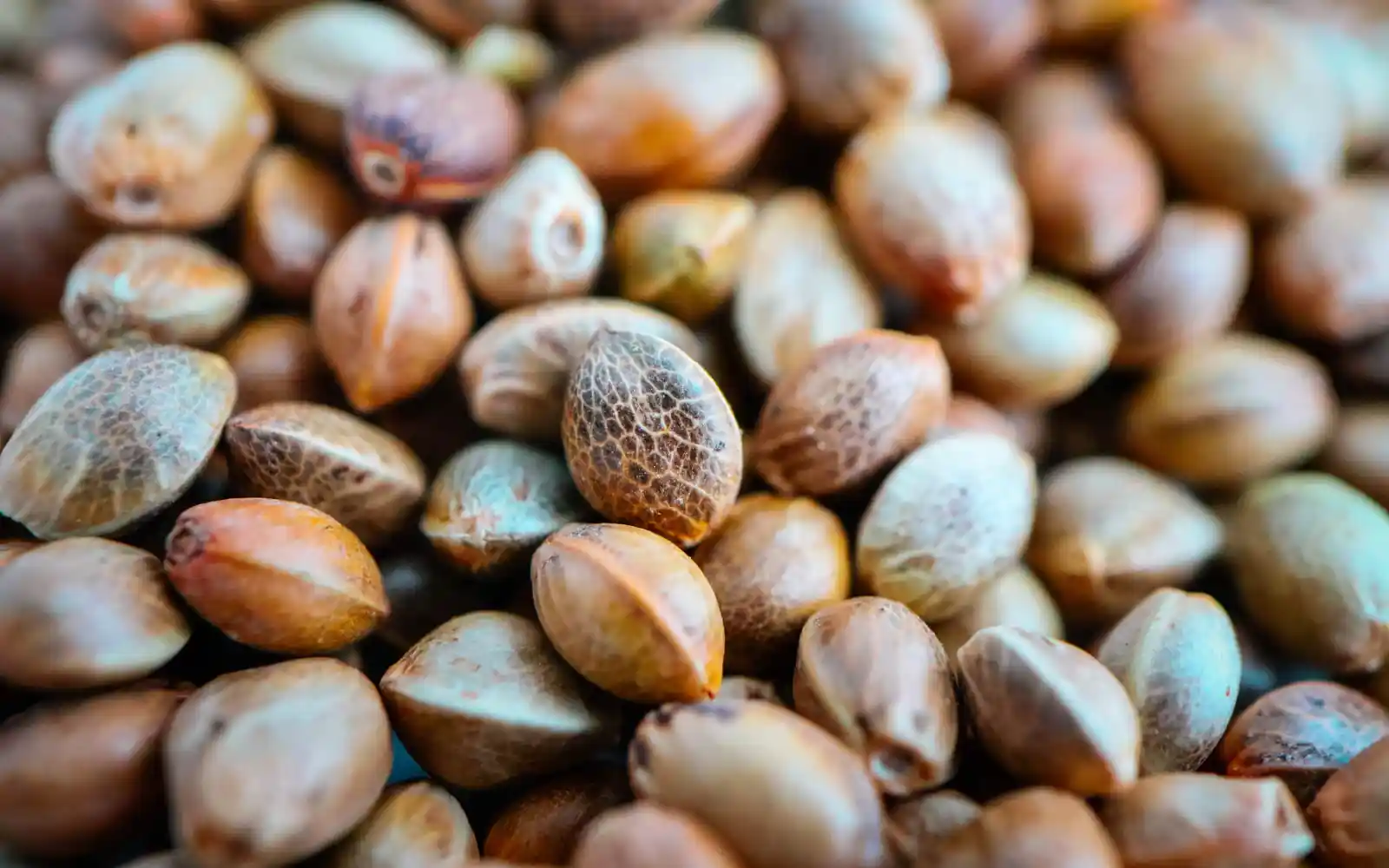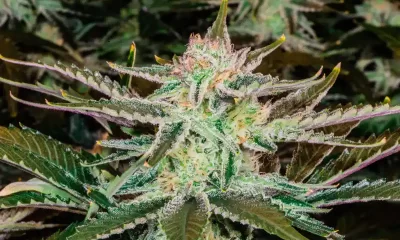Business
North America Dominates Seed Market, Report Indicates

Allied Market Research unveiled its latest Cannabis Seeds Market report.
With home grow on the rise and a growing understanding of cannabis genetics, the cannabis seed market is undergoing its glory days. Allied Market Research provides a report showing the growth backed by data gathered by its team of analysts, who focus on multiple markets.
The global cannabis seed market size was valued at $1.3 billion in 2021, and is estimated to reach $6.5 billion by 2031, representing a compound annual growth rate (CAGR) of 18.4% from 2022 to 2031, according to a new report published by Allied Market Research titled, “Cannabis Seeds Market,” demonstrated the projected growth of the market.
“The cannabis seeds market faced a period of short-term negative growth due to COVID-19 pandemic,” Allied Market Research representatives wrote. “Factors such as a decline in the product demand from major end-users, limited operations in most of the industries, inadequate funding to research and academic institutes, and disrupted supply chain has restricted the overall growth of the market during [the] pandemic period. However, [the] market is now slowly recovering from the negative impact and is expected to capture the growth momentum post 2022.
The Cannabaceae family of flowering plants includes the genus Cannabis, traditionally broken down to Cannabis sativa, Cannabis indica, and Cannabis ruderalis, though some have dropped the sativa/indica terminology.
The cannabis seed market is divided into three categories: feminized, regular, and autoflowering seeds. The regular seeds segment dominates in terms of market size.
The feminized seeds segment is also making an impact, growing at a moderate rate during the forecast period. Wild seeds grow at a 50/50 male-female rate. But feminized seeds are genetically modified using a handful of methods, designed to become only female plants. This has several advantages for growers, but the main one is that pollinating male plants won’t be able to devastate a crop and turn flower to seed. This helps facilitate growth and save a great deal of time and help farmers produce plants with clones.
Autoflowering seeds contain ruderalis genetics crossed with potent strains to induce flowering regardless of light cycles, when normally plants do not flower until they receive a 12/12-hour lighting regime.
These tactics help growers tailor plants to their needs based on several outside factors.
In the report, distribution channels were classified as specialty stores, wholesalers and distributors, and online sales channels. Regional markets were analyzed across North America, Europe, Asia-Pacific, and LAMEA (Latin America, the Middle East and Africa.)
Wholesalers and distributors make up the lion’s share of distribution channel size. The specialty stores segment, however, exhibits the fastest-growing distribution channel. These are the stores that provide expert guidance and detailed product specifications.
Cannabis Seed Benefits
Beyond growing, the seed market also includes the supplement market.
The seeds are great sources of protein, fiber, and healthy fatty acids including omega-3s and omega-6s. They also have significant levels of gamma-linolenic acid and arginine—compounds that help treat chronic pain, lower the risk of heart disease, and help control neurological and other problems.
They also contain calcium, potassium, vitamin E, sulphur, phosphorus, magnesium, and zinc. Those who can’t consume nuts, gluten, lactose, or sugar, however, can eat them because they are high in vitamin E, Allied Market Research adds. The market for cannabis seeds is expanding as a result of the increasing cannabis seed market demand in both the medical and recreational markets.
Cannabis seeds also have been marketed to promote digestion, weight loss, and several other benefits, some of which have yet to be proven. As time rolls on, data will provide more insight into proven benefits.
To learn more about the cannabis seed market, read the full report here.
Source: https://hightimes.com/news/north-america-dominates-seed-market-report-indicates/
Business
New Mexico cannabis operator fined, loses license for alleged BioTrack fraud

New Mexico regulators fined a cannabis operator nearly $300,000 and revoked its license after the company allegedly created fake reports in the state’s traceability software.
The New Mexico Cannabis Control Division (CCD) accused marijuana manufacturer and retailer Golden Roots of 11 violations, according to Albuquerque Business First.
Golden Roots operates the The Cannabis Revolution Dispensary.
The majority of the violations are related to the Albuquerque company’s improper use of BioTrack, which has been New Mexico’s track-and-trace vendor since 2015.
The CCD alleges Golden Roots reported marijuana production only two months after it had received its vertically integrated license, according to Albuquerque Business First.
Because cannabis takes longer than two months to be cultivated, the CCD was suspicious of the report.
After inspecting the company’s premises, the CCD alleged Golden Roots reported cultivation, transportation and sales in BioTrack but wasn’t able to provide officers who inspected the site evidence that the operator was cultivating cannabis.
In April, the CCD revoked Golden Roots’ license and issued a $10,000 fine, according to the news outlet.
The company requested a hearing, which the regulator scheduled for Sept. 1.
At the hearing, the CCD testified that the company’s dried-cannabis weights in BioTrack were suspicious because they didn’t seem to accurately reflect how much weight marijuana loses as it dries.
Company employees also poorly accounted for why they were making adjustments in the system of up to 24 pounds of cannabis, making comments such as “bad” or “mistake” in the software, Albuquerque Business First reported.
Golden Roots was fined $298,972.05 – the amount regulators allege the company made selling products that weren’t properly accounted for in BioTrack.
The CCD has been cracking down on cannabis operators accused of selling products procured from out-of-state or not grown legally:
- Regulators alleged in August that Albuquerque dispensary Sawmill Sweet Leaf sold out-of-state products and didn’t have a license for extraction.
- Paradise Exotics Distro lost its license in July after regulators alleged the company sold products made in California.
Golden Roots was the first alleged rulebreaker in New Mexico to be asked to pay a large fine.
Source: https://mjbizdaily.com/new-mexico-cannabis-operator-fined-loses-license-for-alleged-biotrack-fraud/
Business
Marijuana companies suing US attorney general in federal prohibition challenge

Four marijuana companies, including a multistate operator, have filed a lawsuit against U.S. Attorney General Merrick Garland in which they allege the federal MJ prohibition under the Controlled Substances Act is no longer constitutional.
According to the complaint, filed Thursday in U.S. District Court in Massachusetts, retailer Canna Provisions, Treevit delivery service CEO Gyasi Sellers, cultivator Wiseacre Farm and MSO Verano Holdings Corp. are all harmed by “the federal government’s unconstitutional ban on cultivating, manufacturing, distributing, or possessing intrastate marijuana.”
Verano is headquartered in Chicago but has operations in Massachusetts; the other three operators are based in Massachusetts.
The lawsuit seeks a ruling that the “Controlled Substances Act is unconstitutional as applied to the intrastate cultivation, manufacture, possession, and distribution of marijuana pursuant to state law.”
The companies want the case to go before the U.S. Supreme Court.
They hired prominent law firm Boies Schiller Flexner to represent them.
The New York-based firm’s principal is David Boies, whose former clients include Microsoft, former presidential candidate Al Gore and Elizabeth Holmes’ disgraced startup Theranos.
Similar challenges to the federal Controlled Substances Act (CSA) have failed.
One such challenge led to a landmark Supreme Court decision in 2005.
In Gonzalez vs. Raich, the highest court in the United States ruled in a 6-3 decision that the commerce clause of the U.S. Constitution gave Congress the power to outlaw marijuana federally, even though state laws allow the cultivation and sale of cannabis.
In the 18 years since that ruling, 23 states and the District of Columbia have legalized adult-use marijuana and the federal government has allowed a multibillion-dollar cannabis industry to thrive.
Since both Congress and the U.S. Department of Justice, currently headed by Garland, have declined to intervene in state-licensed marijuana markets, the key facts that led to the Supreme Court’s 2005 ruling “no longer apply,” Boies said in a statement Thursday.
“The Supreme Court has since made clear that the federal government lacks the authority to regulate purely intrastate commerce,” Boies said.
“Moreover, the facts on which those precedents are based are no longer true.”
Verano President Darren Weiss said in a statement the company is “prepared to bring this case all the way to the Supreme Court in order to align federal law with how Congress has acted for years.”
While the Biden administration’s push to reschedule marijuana would help solve marijuana operators’ federal tax woes, neither rescheduling nor modest Congressional reforms such as the SAFER Banking Act “solve the fundamental issue,” Weiss added.
“The application of the CSA to lawful state-run cannabis business is an unconstitutional overreach on state sovereignty that has led to decades of harm, failed businesses, lost jobs, and unsafe working conditions.”
Business
Alabama to make another attempt Dec. 1 to award medical cannabis licenses

Alabama regulators are targeting Dec. 1 to award the first batch of medical cannabis business licenses after the agency’s first two attempts were scrapped because of scoring errors and litigation.
The first licenses will be awarded to individual cultivators, delivery providers, processors, dispensaries and state testing labs, according to the Alabama Medical Cannabis Commission (AMCC).
Then, on Dec. 12, the AMCC will award licenses for vertically integrated operations, a designation set primarily for multistate operators.
Licenses are expected to be handed out 28 days after they have been awarded, so MMJ production could begin in early January, according to the Alabama Daily News.
That means MMJ products could be available for patients around early March, an AMCC spokesperson told the media outlet.
Regulators initially awarded 21 business licenses in June, only to void them after applicants alleged inconsistencies with how the applications were scored.
Then, in August, the state awarded 24 different licenses – 19 went to June recipients – only to reverse themselves again and scratch those licenses after spurned applicants filed lawsuits.
A state judge dismissed a lawsuit filed by Chicago-based MSO Verano Holdings Corp., but another lawsuit is pending.
Source: https://mjbizdaily.com/alabama-plans-to-award-medical-cannabis-licenses-dec-1/
-

 Business2 years ago
Business2 years agoPot Odor Does Not Justify Probable Cause for Vehicle Searches, Minnesota Court Affirms
-

 Business2 years ago
Business2 years agoNew Mexico cannabis operator fined, loses license for alleged BioTrack fraud
-

 Business2 years ago
Business2 years agoAlabama to make another attempt Dec. 1 to award medical cannabis licenses
-

 Business2 years ago
Business2 years agoWashington State Pays Out $9.4 Million in Refunds Relating to Drug Convictions
-

 Business2 years ago
Business2 years agoMarijuana companies suing US attorney general in federal prohibition challenge
-

 Business2 years ago
Business2 years agoLegal Marijuana Handed A Nothing Burger From NY State
-

 Business2 years ago
Business2 years agoCan Cannabis Help Seasonal Depression
-

 Blogs2 years ago
Blogs2 years agoCannabis Art Is Flourishing On Etsy













